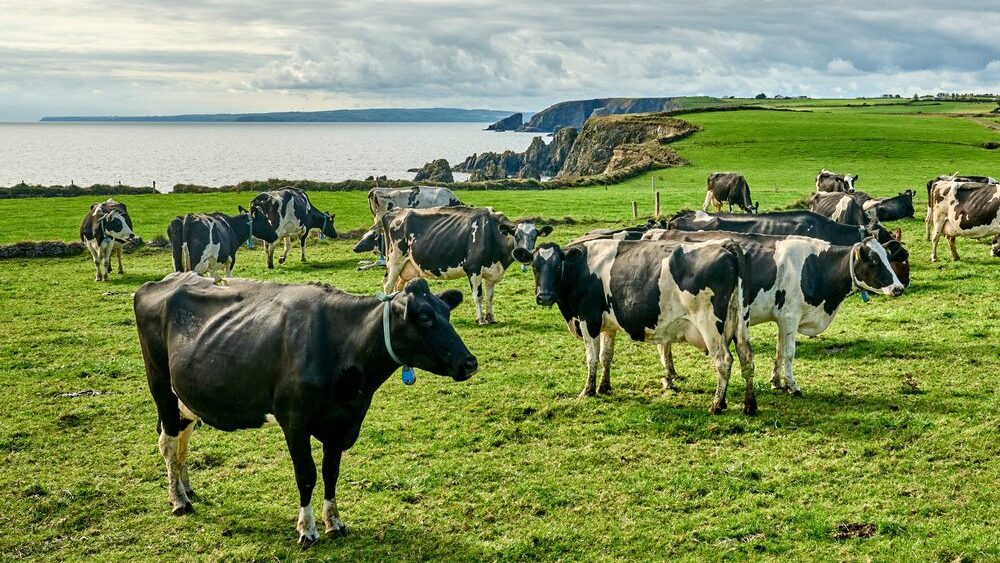
Cattle herd on the green cliffs of southern Ireland near Annestown
The business models of thousands of Irish dairy and beef farmers risk going off a cliff edge early next year as the European Commission reneged on previous allowances given to Irish farmers regarding nitrate emissions.
Part of an EU-wide plan to drastically reduce nitrate pollution due to a supposed risk to water quality, high-value farms in Ireland were originally given permission by Brussels to emit 250 kg of nitrogen per hectare—as opposed to the European standard of 170 kg—on the basis that the Irish government would commit to improving its water quality standards nationwide.
This arrangement appears to have fallen through as a statement by the Irish Department of Agriculture revealed that Dublin has failed to meet the EU-imposed criteria on water quality, leading to the nitrate limit falling to 220 kg starting in January 2024.
Ireland, one of only three EU member states to have been given leniency on nitrate cuts, now fears an impromptu culling of livestock to facilitate the new regulations and is also considering potential compensation schemes for affected farms.
The shock decision has prompted anger from MEPs in Ireland’s ruling EPP Party Fine Gael. MEP Colm Markey confirmed to The European Conservative that he would seek a one-on-one meeting with Commissioner for the Environment Virginijus Sinkevičius during the week.
Irish agriculture is already struggling to adapt to new climate directives, the impact of Brexit, and the potential of a free-trade agreement with Latin America which could flood Europe with cheap beef imports. Ireland’s dairy industry alone is estimated to provide €13.1bn worth of annual revenue to the national economy.
Despite requests from various farmers’ lobbies to intervene, the Irish Prime Minister (Taoiseach) Leo Varadkar has stated that his government has exhausted all opportunities to seek a reversal and that, ultimately, the issue remained the sole prerogative of Brussels—not Dublin.
In a statement to The European Conservative, Commission officials accepted the “difficult situation” for Irish farmers but stated that their shift in cutting the nitrate limit was motivated by the Irish government’s failure to improve water standards. EU documents cited a rapid increase in livestock production since 2016 as an additional factor for the nitrate cuts.
One rural government politician and part-time dairy farmer himself, Jackie Cahill, has already described how this week’s EU decision would hit family farms in particular at a time when the industry is struggling to retain young people.
Protests against stringent nitrogen cuts have already bubbled up in Ireland in recent months. Some 2,000 farmers and supporters gathered in the town of Bandon last July shortly before the establishment of a Dutch-style farmers’ party that subsequently announced plans to run in elections next year.
